No products in the cart yet. Keep shopping.
Gold Star Recyclers – Vilis Family Bakery
Vili's Family Bakery - Gold Star Recycler “I hate waste!” Vili Milisits, South Australian entrepreneur and owner of the iconic Vili’s Bakery, is...

I didn’t ever think I would be one of those people. Snail bait! I have been chucking the stuff around like it’s nobodies business and guess what. It worked. Although I’m quite sad that I’m heartlessly out in the wild entrapping another creature, albeit the humble snail, I’m very pleased to say that my plants are growing! And a few that I thought lost, have returned – the Kale and the Horseradish AND the Lemon Verbena! The Rhubarb remains untouched and the Spinach, Purple Broccoli and Silver Beet are flourishing!
Safety announcement: I feel obliged to say that the bait I used is deemed safe for pets and lizards and birds. I have a small dog and young children and didn’t want to toss poisons around the garden willy nilly. Mark suggested the one I have used and by golly did it work.
But enough of the snails and onto the Fruit Trees . . . or Possum Buffet – whichever you prefer.
This month Mark had a great selection of fruit trees, so the family picked out their favourites:
Daughter – Fuji Apple (she lost a tooth in one once and she’s loved them ever since)
Son – Pomegranate (I still don’t know why …)
Husband – “I don’t care, just tell me where to dig the holes’
Me – Lemon, Golden Delicious, Peach, Mandarin and Apricot. Yum.
First things first
We needed to clear out the raised garden bed which runs the length of the back fence. This is where I had originally thought to espalier fruit trees, but after clearing the site I realised that the area was a lot bigger than originally thought and would support fruit trees growing in all their full-bodied glory (Plus we had no idea how to espalier and not wanting to get divorced, I stuck to the KISS principle).
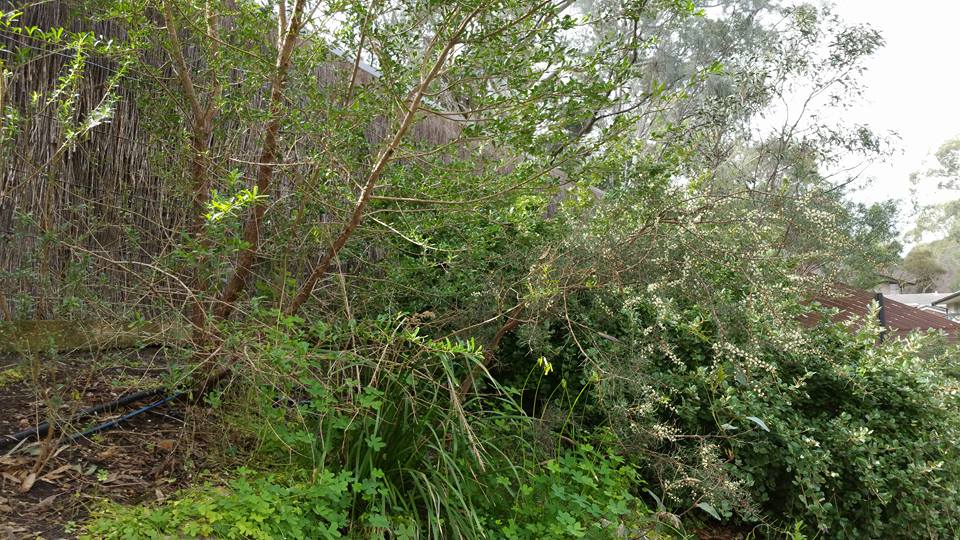
My lovely husband fired up his chainsaw and cleared out the somewhat spindly and unkempt trees and bushes. I“m not sure if these had been planted on purpose, but it did seem to go with the rest of the garden motif that is our back yard. You could argue that a chainsaw was a bit of overkill, however clearing the garden bed only took 20 minutes including a fairly big tree. Plus hubby got to get his grunt on. Clearing them away was another hour or so.
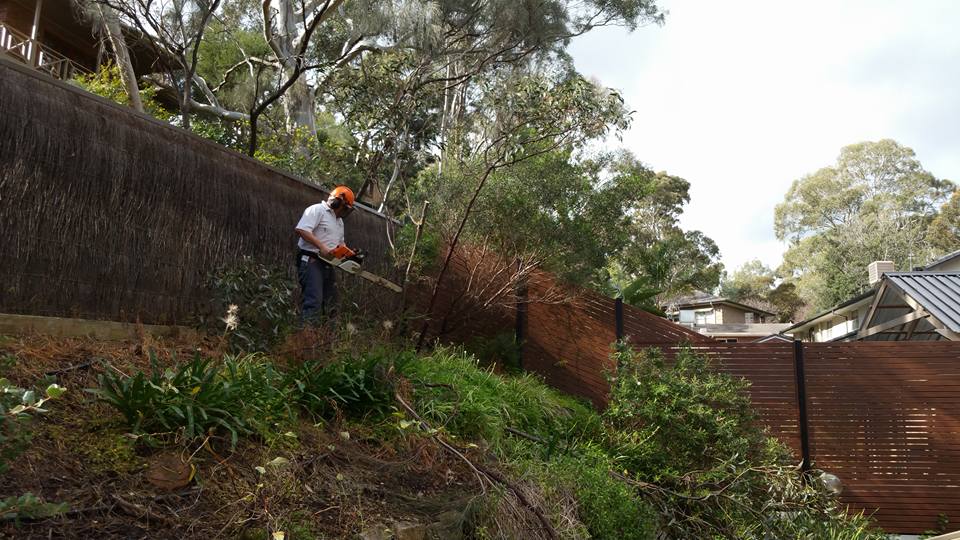
Then he was set to task digging 7 holes. We followed the digging instructions on each of the trees and then mixed Jeffries Organic Compost with the soil that was dug out of the hole to then fill it in.
![]()
Mark told me not to mix too much compost into the soil so as to not make it too nice and nutritious in the hole, otherwise the roots wont want to grow beyond the hole.
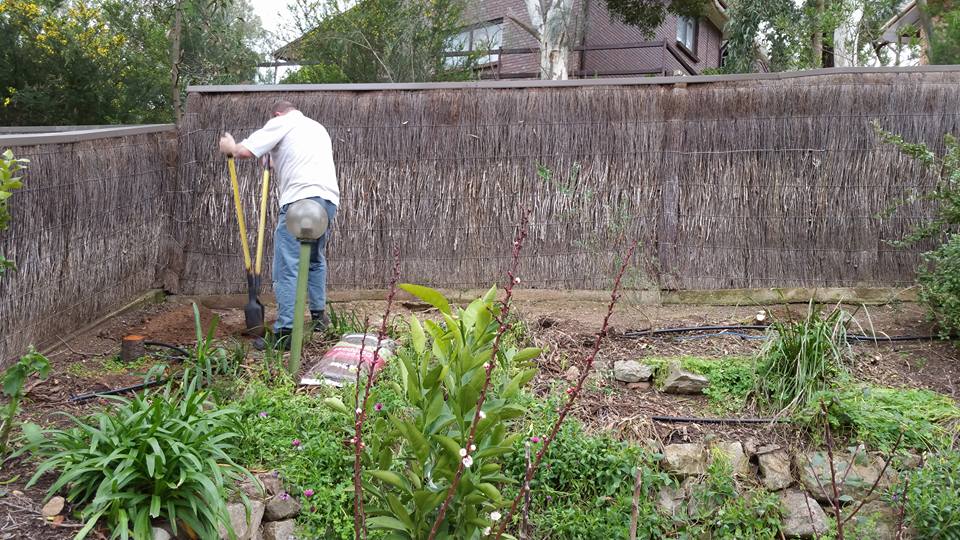
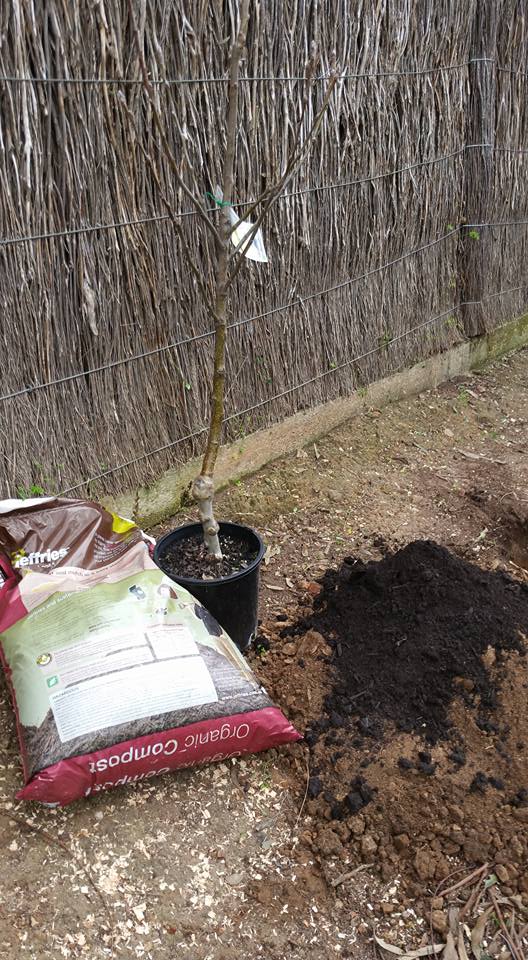
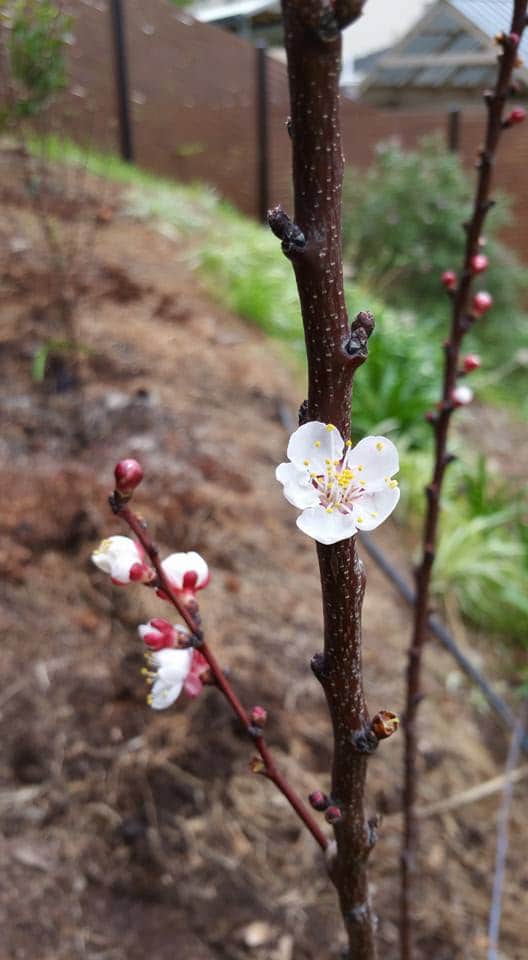
We left a large bush in the middle of the garden bed as it is a flowering native and I want to encourage birds and insects into the garden.
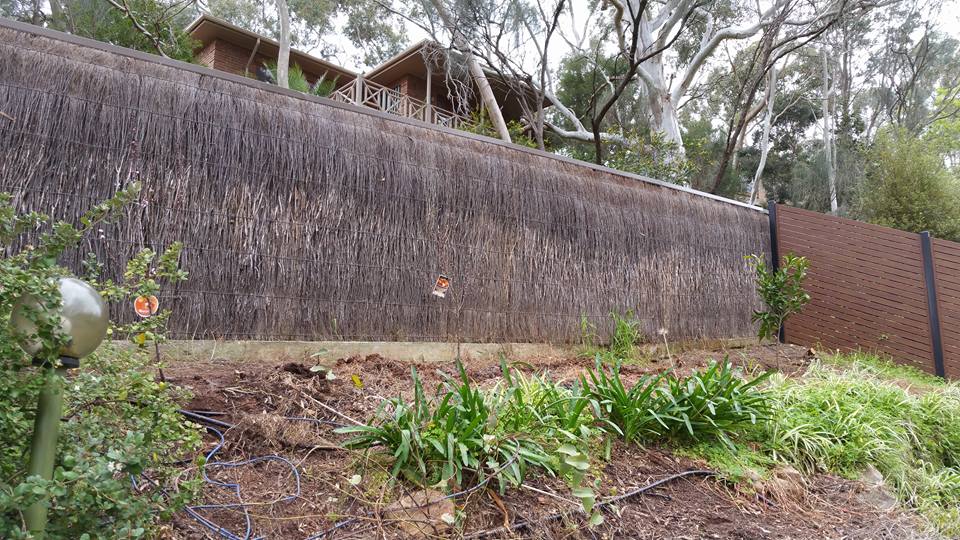
And this is the finished half of the back fence / raised garden / possum buffet.
So around 2 hours later we had a cleared out raised garden bed with 7 lovely fruit trees. Now I just have to work out how to prune them and where to hang the possum netting next Spring.
Operation Veggie Patch
Starting with seeds – Operation Veggie Patch – Part 1
Getting the soil right – Operation Veggie Patch – Part 2
Project 2 – Insect attracting plants (aka can not plant chillies this time of year)
Project 4 – Fruit trees — the snails are dead and the possum buffet is in
Project 5 — Growing a medicinal garden
Project 6 — Can we grow a banana tree & don“t forget the sheep liver!
Vili's Family Bakery - Gold Star Recycler “I hate waste!” Vili Milisits, South Australian entrepreneur and owner of the iconic Vili’s Bakery, is...
Jeffries CulChar is the perfect organic fertiliser for garden beds, lawns and native plants: with the added benefits of our secret ingredient.
Jeffries latest innovation, Jeffries CulChar, is a complete, certified organic, slow-release fertiliser, including essential trace elements and minerals. The inclusion of Jeffries BioChar works together with the organic carbon of the included compost as a long-term soil conditioner. Jeffries CulChar is a very complete and cost-effective nutritional offer that is safe to use in direct contact with plants and their root systems.
Let’s take a closer look at how Jeffries CulChar works and compare how it performs next to other organic fertiliser alternatives.
There’s no denying that Jeffries Organic Compost is a useful soil amendment. Among its many benefits, it improves aggregate formation, porosity,...